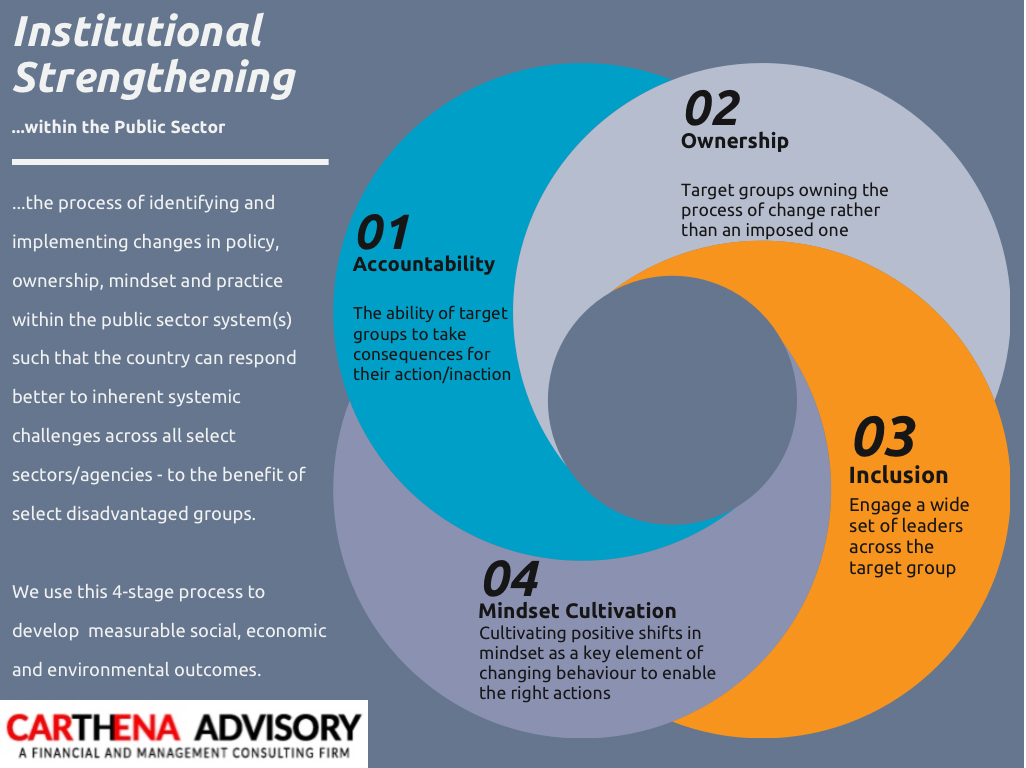Overview
Institutional strengthening is the use of existing human/systems infrastructure at the various levels of government and philanthropic/private capital to support Federal and State institutions’, who intend to achieve measurable social, economic and environmental outcomes; in other words, increasing the capacity or ability of institutions to perform their functions with a particular focus on improving governance.
These services are designed to enhance the administrative, technical, financial, and managerial capabilities of institutions, in both the public and private sectors.
At its core, institutional strengthening services are about building a foundation for success by improving the efficiency and effectiveness of an institution’s operation, promoting transparency and accountability, and fostering good governance practices.
Institutional Strengthening Services
To achieve these objectives, our institutional strengthening services includes a range of activities, such as institutional assessments, policy and strategy review/development, governance and leadership training, financial management support, human resource capacity building, and technology solutions.
Through the provision of our institutional strengthening services, institutions can become better equipped to navigate complex environments and to respond proactively to new challenges and opportunities. By enhancing their capacities for planning, implementation, monitoring, and evaluation, institutions can achieve greater efficiency and effectiveness in their operations, leading to improved service delivery and increased impact.
Our work is mainly targeted at State governments/agencies and NGOs/IDAs to achieve the needed social/economic impact across the populace and/or desired target group(s). Details of how institutional strengthening can be implemented from a National perspective (Nigeria as an example can be found here). Details of its actual implementation in Bangladesh can be found here.
An example was the engagement targeted at MSMEs and the rural disadvantaged populations (in the agricultural sector of Benue and Kogi States) – where through the process of accountability, ownership, inclusion and mindset cultivation, we were able to create access to capital, capabilities and markets for these beneficiary populations. Details of similar work on food security (as another example) can be found here – sustainable food security via systems strengthening initiatives.
Overall, institutional strengthening services play a critical role in building stronger, more resilient, and sustainable institutions that can achieve their goals and deliver benefits to their stakeholders over the short, medium and long term.


